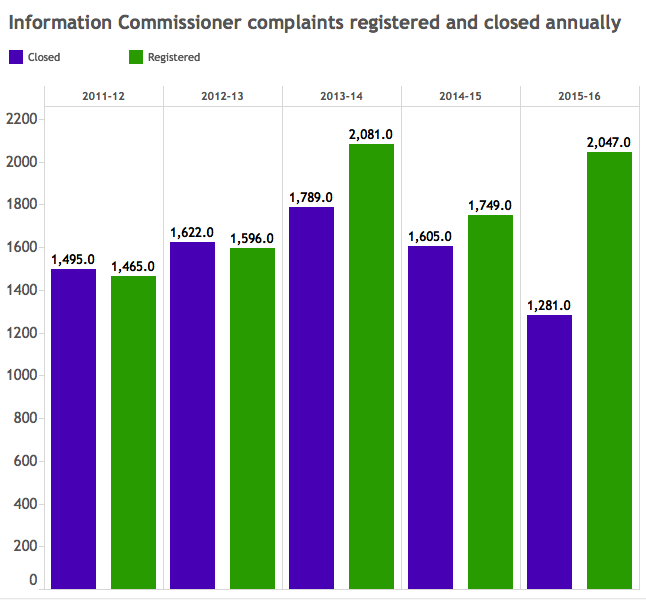The Liberals plan to strengthen “as early as this year” the watchdog responsible for keeping government transparent and making public information public — but they’ve given her office less money than she’s gotten since 2009.

Information Commissioner Suzanne Legault asked for more money leading up to the 2016 budget’s release, a spokesperson confirmed.
She got none. Legault’s $11.3-million budget is several thousand below any of the past few years.
Once you account for inflation, this is the lowest annual amount the office gotten since 2008-09.
DUTY TO DOCUMENT: What you need to know about access-to-information reform
(We used previous years’ data from these reports. The office’s budget was “artificially high” in 2013-14 because of office relocation costs.)

The information watchdog is in discussions with the feds about an increase in funding next year.
The less money she has, Legault argues, the less able she is to investigate whether the government is doing its job when it comes to transparency.
“These financial pressures hinder the Commissioner’s ability to carry out her mandate effectively and ensure the rights conferred by the Access to Information Act are respected,” reads a note on the Commissioner’s 2016-17 Report on Plans and Priorities.

Get breaking National news
During last year’s election campaign the Liberals promised to usher in a new era of government transparency. In their first six months they’ve “unmuzzled” government scientists and published Cabinet members’ mandate letters — the latter, especially, a move Legault lauded.
Treasury Board President Scott Brison has said the government won’t review the 33-year-old law until a year before the next election — but a spokesperson said Thursday the government plans to implement all of their promised reforms as soon as possible and as early as this year.
READ MORE: Feds censor transparency memos
Legault argued last spring the law needs a major overhaul: She called for streamlining and speeding up the request process, making the Prime Minister’s office and ministers’ offices subject to the act, and narrowing vague exemptions — for example, one that allows for the redaction of anything considered “advice to the minister.”
But perhaps the most significant demand was that country’s transparency watchdog be given teeth: Right now Legault can ask, implore, exhort the feds to divulge information — but she can’t make them do it. Her recourse if they refuse is to sue, which she has done in the past.
In the meantime, Brison has pledged to tackle “quick wins” on transparency.
“As early as this year,” a spokesperson for the Treasury Board said in an email, the federal government plans to
- Give the Commissioner the ability to order the release of government information;
- Include the Prime Minister’s and other ministers’ offices under the Act;
- Eliminate all fees on access-to-information requests beyond the initial $5 application fee;
- Give written explanations when information’s withheld;
- Require the Act be reviewed every five years.
“We are also looking at ways to strengthen and further empower the Information Commissioner’s office,” the Treasury Board email reads.
HOUNDS OF PARLIAMENT: Read our profile of Suzanne Legault
The Information Commissioner exists to act as a check on government opacity — to ensure information that should be public is made public, and that requests for public information are dealt with fairly and in a timely manner.
She has her hands full: Legault’s caseload of complaints has grown, as has the gap between cases closed and new ones filed.

“In fact, available funding has decreased in recent years. … The ensuing delay in investigating these complaints is negating information rights.”
Most Canadians don’t interact with Canada’s access-to-information system, in part because its cumbersome design is daunting to most people who aren’t paid to seek out info.
But the number of requests filed has increased significantly over the past several years. The Conservatives argued this increased indicated their government’s transparency; their critics argued the increase in requests showed how dysfunctional the system had become and how difficult it became to get public information any other way.
All that aside, Legault told viewers in a Google hangout last week she’s cautiously optimistic about the new government.
“I think there are some good signs that are coming. Certainly the interaction with my office is very positive,” she said.
“So I’m very encouraged by that.”








Comments